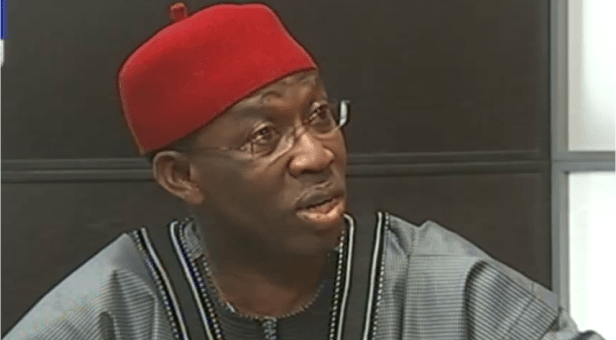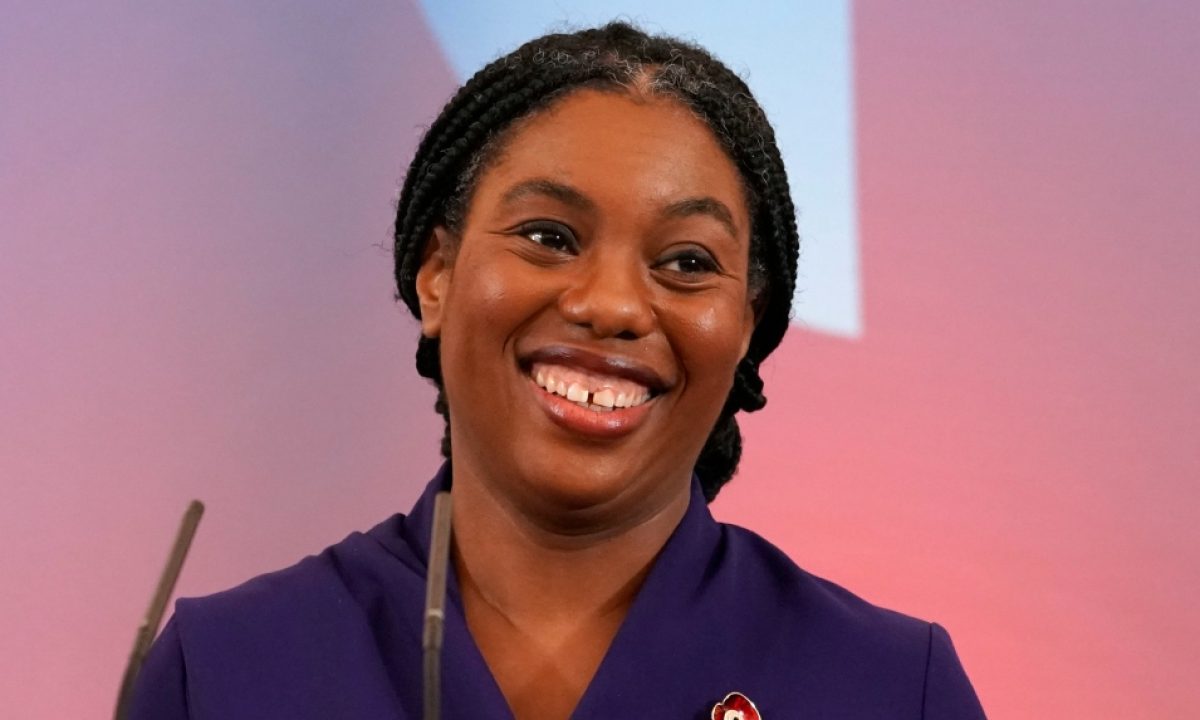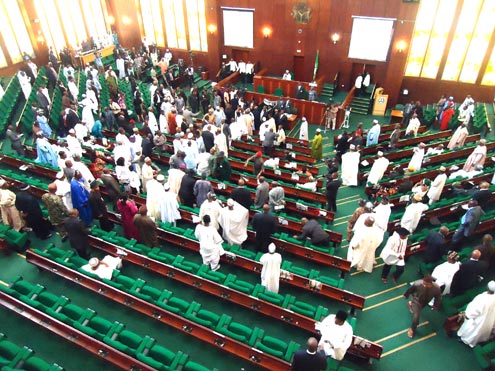Headlines
Okowa Criticises FG for Allowing Zamfara to Control Gold, Depriving South South Control of Oil

The governor of Delta State, Ifeanyi Okowa, on Wednesday said criticised Buhari administration’s decision to allow some states like Zamfara mine and manage gold and other solid minerals in their domains, while stopping the Niger Delta states from managing their oil and gas resources.
The governor said the policy was “discriminatory”. He said all states in the South-South region were united in the quest for the restructuring of the country.
Mr Okowa stated this during his quarterly interaction with journalists on Wednesday in Asaba.
He said that there was need to restructure the country to pave the way for the devolution of more powers to states and local governments.
According to Mr Okowa, who is the Chairman, South-South Governors’ Forum, Nigeria is not making progress as it ought to because the issues of restructuring and resource control are yet to be addressed.
He disclosed that restructuring and resource control as well as security would form a major plank of the discussion at a meeting between a presidential delegation and leaders of the South-South billed for Port Harcourt on Friday.
“The South-South Governors have been in the forefront for the devolution of power to states and local governments.
“Restructuring, resource control and security of the country, especially in the Niger Delta will be a major topic of discussion at the Presidential parley coming up in Port Harcourt,” he said.
Responding to a question on the gold deposit in Zamfara State and the decision of the state government to control the resource, the governor said that there were Acts of the National Assembly that dealt with oil production and solid minerals.
“We cannot apply laws in such a manner that it becomes discriminatory because you cannot mine solid minerals somewhere in Zamfara and you can’t allow Niger Delta to manage their oil,’’ he said.
Under the Nigerian constitution, all mineral resources in the country are controlled by the federal government. Many have however argued that doing so opposes the idea of true federalism, in which component states are expected to manage their affairs and only contribute to the federal coffers through tax.
Calls for the implementation of true federalism and for the restructuring of the country have been rebuffed for years.
However, the federal government recently announced its support for artisanal mining of gold in some northern states, including Zamfara. President Muhammadu Buhari launched the Presidential Artisanal Gold Mining Development Initiative, a comprehensive artisanal and small-scale gold mining development programme in 2019.
On complaints from oil-producing communities, Mr Okowa said that there was an ongoing process to ensure that what got to the communities became statutory and enshrined in the Constitution or in the Petroleum Industry Bill (PIB).
Mr Okowa said that governors in the South-South were doing well in managing the 13 per cent derivation fund to their states.
“The kind of money we spend, especially on road construction in the Niger Delta is very huge compared to what other states spend and we also spend lots of money securing oil facilities and keeping peace in the region.
“We have our DESOPADEC managing the derivation funds and I am convinced that they are doing their best to make life better for the oil-producing communities.
“We have been short-changed severally because we are not in control of how the funds are distributed. There is a lot of money being owed us on derivation and we are working very hard to get the Federal Government to pay us because it will help us so much in our budget to provide more for the oil producing communities.
“If every community rises up to control their resources then there will be chaos and anarchy,” he said.
The governor hinted that the state government may employ more teachers in the first quarter of 2021 to cater for newly established technical colleges being constructed across the state.
“In 2021 we will employ more teachers basically in Science and Technical Education. We will employ according to needs and not according to pressure.”
He said that his administration had completed many road projects, including the Ovwor-Effurun-Otor Bridge in Ughelli South Council Area, adding that the government had also awarded and mobilised contractors for two major storm drainage projects in Warri, Uvwie and environs.
“We have mobilised them and I hope they work well in this dry season because without tackling the drainage systems in Warri, any road constructed there will not last,’’ he stated.
On tourism, Mr Okowa stated that his administration was constructing Asaba Leisure and Film Village along Illah Road, adding that most movie producers will be headed to Asaba once the project was completed in May, 2021.
Premium Times
Headlines
US Imposes $15,000 Visa Bond on Visiting Nigerians

The United States has introduced new travel restrictions that may require Nigerians applying for B1/B2 business and tourism visas to post financial bonds of up to $15,000, as Washington tightens entry conditions for nationals of countries it classifies as high risk.
Under the new policy announced by the U.S. State Department on Tuesday, applicants from 38 countries, 24 of them in Africa, including Nigeria, may be required to provide visa bonds of $5,000, $10,000, or $15,000, depending on the assessment made during their visa interview. The measures will take effect on different dates, with Nigeria’s implementation scheduled to begin on January 21.
According to the State Department notice, “any citizen or national traveling on a passport issued by one of these countries, who is found otherwise eligible for a B1/B2 visa, must post a bond for $5,000, $10,000, or $15,000.” Applicants will also be required to submit a Department of Homeland Security Form I-352 and agree to the bond terms through the U.S. Treasury Department’s Pay.gov platform, regardless of where the visa application is submitted.
The department stressed that payment of a bond does not guarantee the issuance of a visa, warning that fees paid without the direction of a consular officer will not be refunded.
Nigerians who post the required bonds and obtain visas will also be restricted to entering the United States through designated airports, including Boston Logan International Airport, John F. Kennedy International Airport in New York, and Washington Dulles International Airport in Virginia.
Refunds of the bonds will only be made if the Department of Homeland Security confirms that the visa holder departed the United States on or before the authorised date of stay, if the applicant does not travel before the visa expires, or if the traveller applies for entry and is denied admission at a U.S. port of entry.
The development comes barely a week after partial U.S. travel restrictions on Nigeria took effect. On December 16, Nigeria was listed among 15 mostly African countries placed under partial travel suspensions, alongside Angola, Antigua and Barbuda, Benin, Côte d’Ivoire, Dominica, Gabon, and The Gambia.
Explaining Nigeria’s inclusion, U.S. authorities cited the continued activity of extremist groups such as Boko Haram and the Islamic State in parts of the country, which they said created “substantial screening and vetting difficulties.” The U.S. also referenced visa overstay rates of 5.56 percent for B1/B2 visas and 11.90 percent for F, M, and J visas.
As a result of the designation, the suspension covers both immigrant visas and several non-immigrant categories, including B1, B2, B1/B2, F, M, and J visas.
Headlines
UK’s Opposition Leader Kemi Badenoch Backs Trump on Venezuela Invasion, Maduro’s Removal

United Kingdom’s Conservative Party leader, Kemi Badenoch, has said that the United States’ military action to remove Venezuela’s President Nicolás Maduro was the right decision on moral grounds, even though the legal basis for the operation remains unclear.
Speaking to the BBC, Badenoch said she does not understand the legal justification for United States President Donald Trump’s decision to remove Maduro but described the Venezuelan leader as presiding over a “brutal regime,” adding that she is “glad he’s gone.”
She, however, warned that the operation raised serious concerns about the rules-based international order.
The UK government has so far avoided directly criticising the US action or stating whether it breached international law, instead maintaining that Maduro was an “illegitimate president.”
However, several Labour MPs and opposition parties, including the Liberal Democrats, the Green Party and the SNP, have called on the government to condemn the operation and describe it as illegal.
Badenoch, speaking on BBC Radio 4’s Today programme, described the US intervention as “extraordinary” but said she understood why it was carried out.
“Where the legal certainty is not yet clear, morally, I do think it was the right thing to do,” she said.
The Conservative leader, who spent part of her childhood in Nigeria before returning to the UK at the age of 16, said her upbringing under military rule shaped her views on authoritarian leadership.
“I grew up under a military dictatorship, so I know what it’s like to have someone like Maduro in charge.”
She also distinguished the situation in Venezuela from President Trump’s comments on Greenland, saying it was right to oppose any US intervention there.
“There is a big difference between democratic states” and the “gangster state in Venezuela”.
“What happens in Greenland is up to Denmark and the people of Greenland,” she added.
Trump has in recent days renewed his threats to annex Greenland, a semi-autonomous Danish territory with a strategic location and rich mineral resources, arguing that the move is necessary for US national security. The UK has issued a joint statement alongside France, Germany, Italy, Poland, Spain and Denmark, insisting that decisions concerning Greenland’s future rest solely with Denmark and the people of Greenland.
Health Secretary Wes Streeting said the government’s stance on Greenland differed from Venezuela because Denmark is a member of NATO and questioning Greenland’s future was not in the UK’s national security interests. He also defended the prime minister’s response to developments in Venezuela, saying it was guided by national interest and concern for the Venezuelan people.
“I appreciate there are others who have been more strident and have been more critical of the United States,” he said.
“The prime minister has a different responsibility, and he is choosing his words carefully and wisely to try and influence how events unfold from here on.”
Critics of the government’s approach, including Labour MP Emily Thornberry, chair of the Commons Foreign Affairs Committee, have argued that the US action risks emboldening Russia and China and that the UK should clearly state that the operation breached international law.
In a statement to the House of Commons on Monday evening, Foreign Secretary Yvette Cooper said she had reminded US Secretary of State Marco Rubio of his obligations under international law, while reiterating that it was for the US to set out the legal basis for its actions.
Maduro and his wife were seized in Caracas on Saturday during a US military operation that also included strikes on military bases across the country. They were taken to New York, where they have been charged with weapons and drug-related offences over allegations that they enriched themselves through a violent crime ring smuggling cocaine into the US.
Maduro has long rejected the allegations as a pretext to force him from power, and both he and his wife have pleaded not guilty to the charges. Trump has vowed to “run the country” until a “proper” transition of power takes place, with Vice-President Delcy Rodríguez sworn in as interim president
Headlines
Controversial Tax Laws: Reps Release Certified True Copy of Reformed Act

The House of Representatives has released the certified copies of the four tax reform Acts recently signed into law by President Bola Tinubu, following public concerns over alleged discrepancies and the circulation of unauthorised versions of the laws.
This was disclosed in a statement signed by the spokesperson of the House, Akin Rotimi, on Saturday.
According to the statement, the House, under the leadership of the Speaker, Tajudeen Abbas, directed the immediate release of the Certified True Copies (CTCs) of the Acts, including the endorsement and assent pages signed by the president, to Nigerians for public record, verification and reference.
The decision, taken in concert with the Senate President, Godswill Akpabio, followed allegations that versions of the tax laws in circulation differed from those passed by the National Assembly and assented to by the president.
The controversy was first raised on the floor of the House by Abdulsamad Dasuki (PDP, Sokoto), who drew the attention of lawmakers to alleged discrepancies between the tax Bills passed by the National Assembly and the versions subsequently gazetted and made public by the executive arm.
Mr Dasuki warned that the inconsistencies, if left unchecked, could undermine legislative integrity and public confidence in the law-making process. His intervention triggered debates within and outside the National Assembly, with legal practitioners, tax experts and civil society organisations demanding clarification and suspension of the implementation of the Acts.
In response, Mr Tajudeen constituted a seven-member ad hoc committee chaired by Aliyu Betara, whose members included Idris Wase, Sada Soli, Adedeji Faleke, Igariwey Iduma, Fred Agbedi and Babajimi Benson.
The committee was directed to investigate the circumstances surrounding the alleged alterations, how unauthorised versions came into circulation and measures to prevent a recurrence.
Mr Tajudeen also ordered an immediate internal verification of the Acts and approved the public release of the certified versions to eliminate doubts, restore clarity and protect the sanctity of the legislative record.
The four tax reform laws released are the Nigeria Tax Act, 2025; the Nigeria Tax Administration Act, 2025; the National Revenue Service (Establishment) Act, 2025; and the Joint Revenue Board (Establishment) Act, 2025.
The House described the laws as the backbone of Nigeria’s contemporary tax reform framework, aimed at modernising revenue administration, improving compliance, reducing inefficiencies, eliminating duplication and strengthening fiscal coordination across the federation.
It said Mr Tajudeen provided firm leadership throughout the tax reform process, from stakeholder consultations and committee scrutiny to clause-by-clause consideration and robust plenary debates, to ensure the reforms were inclusive, evidence-based and aligned with Nigeria’s fiscal realities.
Reassuring Nigerians, Mr Rotimi said, “The National Assembly is an institution built on records, procedure, and institutional memory. Every Bill, every amendment, and every Act follows a traceable constitutional and parliamentary pathway.”
He stressed that once a law is passed and assented to, its integrity is preserved through certification and custody by the legislature, adding that there is no ambiguity about what constitutes the law.
He further emphasised that the only authentic and authoritative versions of the four tax Acts are the certified copies released by the National Assembly, urging the public to disregard any other documents or versions in circulation.
“Members of the public, institutions, professionals, and stakeholders are therefore advised to disregard and discountenance any other documents or versions in circulation that are not certified by the National Assembly, as such materials do not form part of the official legislative record,” the statement read.
The House also disclosed that the Clerk to the National Assembly has concluded the process of aligning the Acts with the Federal Government Printing Press to ensure accuracy, conformity and uniformity, adding that hard copies have been produced, circulated to lawmakers and made available to the public.
“The Clerk to the National Assembly has concluded the process of aligning the Acts – duly passed, assented to, and certified – with the Federal Government Printing Press to ensure accuracy, conformity, and uniformity. Hard copies of the certified tax Acts have also been produced and are being circulated to all Honourable Members and Distinguished Senators, and made available to the public, to ensure institutional clarity, uniform reference, and legislative certainty.”
It added that the ad hoc committee chaired by Mr Betara continues its work in line with its mandate to determine the circumstances surrounding the circulation of unauthorised versions of the tax Acts and recommend safeguards to preserve the integrity and reliability of parliamentary records.
The House reaffirmed its commitment to constitutionalism, the rule of law, transparency and accountable governance, pledging to strengthen internal controls, uphold institutional discipline and protect the integrity of Nigeria’s legislative process.
“The House will continue to strengthen internal controls, uphold institutional discipline, and protect the integrity of Nigeria’s legislative process in the collective interest of the Nigerian people,” it concluded.






